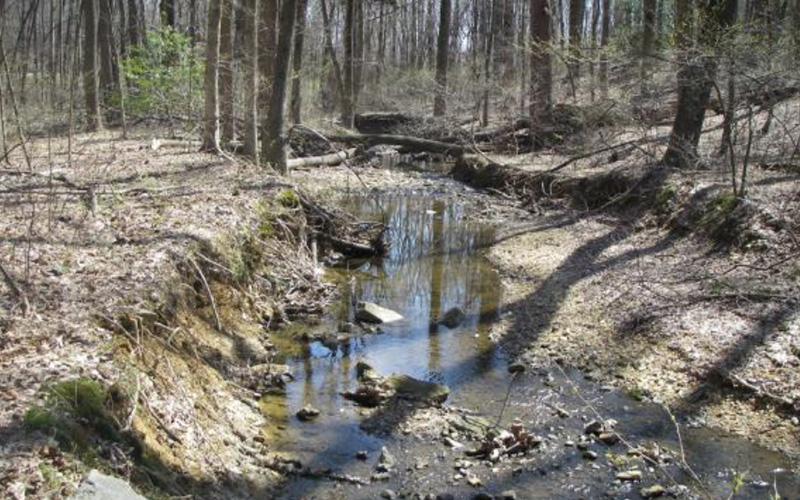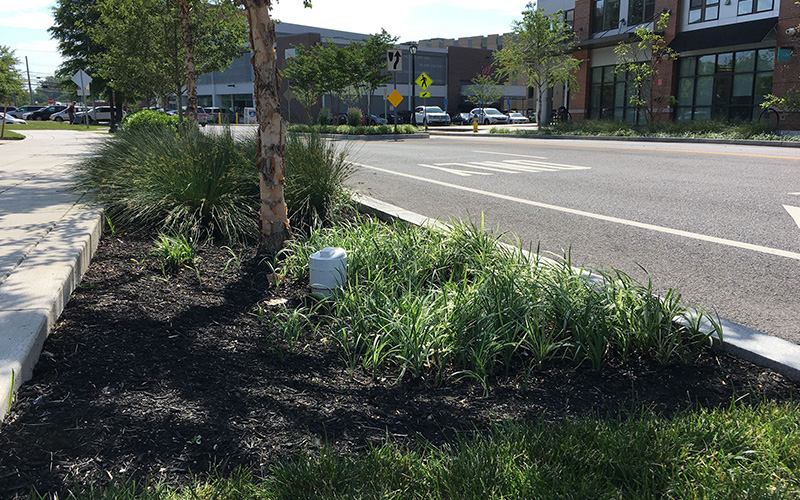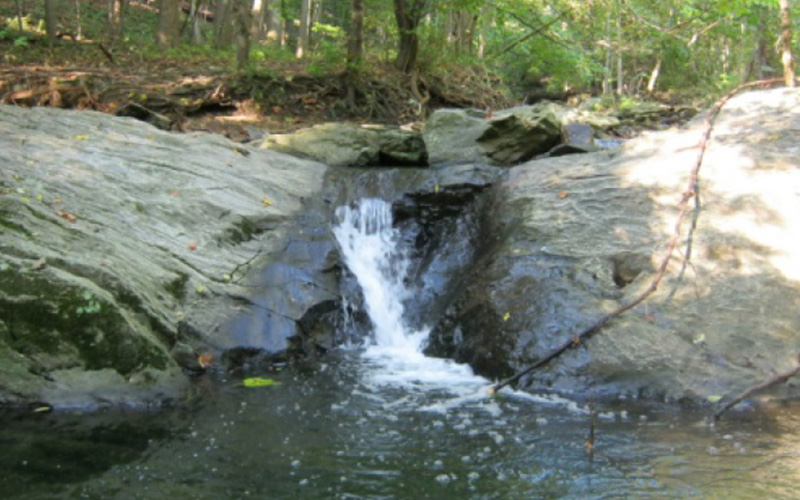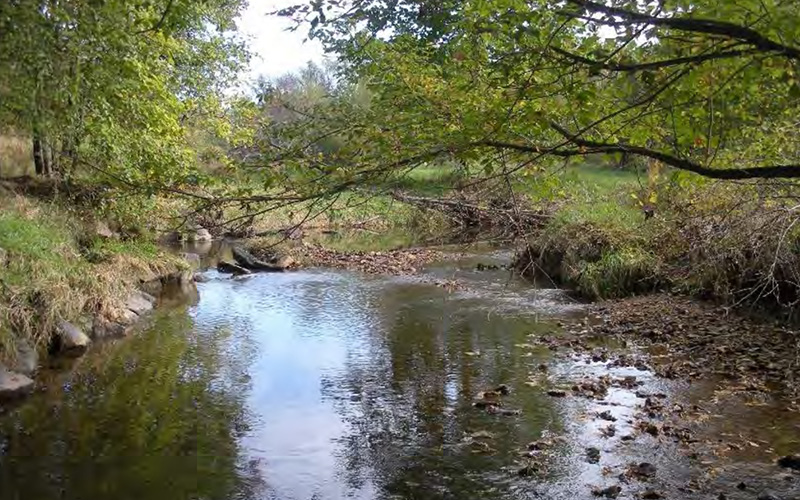In a natural, undeveloped area, rain and snow falls on the ground and evaporates or is absorbed into the soil. In urban, developed areas such as Rockville, rain falls onto impervious surfaces like roads, driveways, roofs, and parking lots and “runs off,” flowing into the city’s storm drain system. This water is referred to as stormwater or stormwater runoff.
Stormwater runoff has been identified as the number one cause of pollution to creeks, streams, and rivers, which are the source of our drinking water. Not only is protecting water quality the right thing to do, it is also a requirement of the National Pollutant Discharge Elimination System (NPDES) Municipal Separate Storm Sewer System (MS4) permit issued to the city by the Maryland Department of the Environment (MDE).
Climate change has also increased the frequency of intense rain events that contribute to flooding. Adapting our stormwater infrastructure and programs to meet the challenges of climate change is a key component of the resiliency goals in the city’s Climate Action Plan.
Stormwater runoff:
- Pollutes our creeks and rivers with fertilizers, pesticides, pet waste, oil, litter, and sediment.
- Destroys valuable aquatic, wetland, and riparian habitat.
- Erodes stream banks and threatens public infrastructure.
- Floods homes and businesses.
Stormwater and Watersheds
A watershed is an area of land where all the water, including stormwater and storm drains, flows to the lowest point—usually a stream, lake, or river. No matter where you live, work, or play, you’re in a watershed.
Stormwater runoff in Rockville flows through one of three watersheds: Cabin John Creek, Rock Creek, or Watts Branch. These streams then flow into the Potomac River, which then flows into the Chesapeake Bay. These waterways not only provide important habitat for plants and wildlife, but they are also the source of the city’s drinking water! Explore Rockville’s watersheds with the Watersheds Map.
How Rockville Manages Stormwater
The City of Rockville manages stormwater by regulating development in the city, and by planning, designing, building, and maintaining public stormwater infrastructure, such as stormwater pipes, inlets, and treatment facilities, to capture rainwater, decrease flooding, and reduce pollution. The Stormwater Management Utility Fee funds the city’s comprehensive stormwater program.
Stormwater Studies and Plans
The city conducts studies and plans of watersheds periodically to help make informed and strategic decisions about stormwater projects planned over the next several decades.
Planning ahead allows us to keep residents safe and informed on projects that reduce flooding and improve water quality. Based on the results of these studies, projects are prioritized based on need, severity, and funding.
Project examples include:
- Repairing and upgrading street and neighborhood stormwater culverts and pipes.
- Retrofitting stormwater facilities.
- Repairing and restoring streambanks and riparian areas.
- Preserving and creating wetlands.
contact
Jump To
Contact
Public Works Department
Environmental Management Division
240-314-8870
environment@rockvillemd.gov
Hours
Monday – Friday
8:30 a.m. – 5 p.m.



